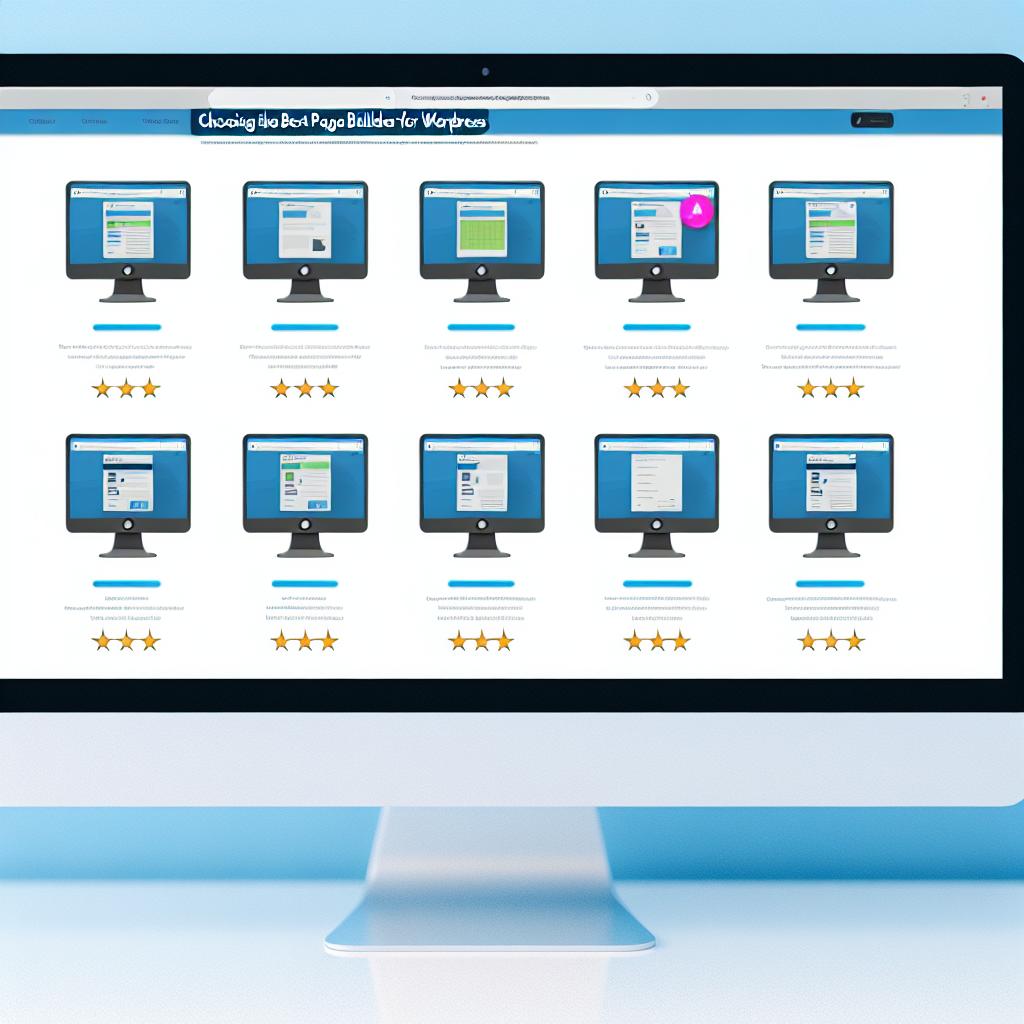Understanding WordPress Page Builders
WordPress page builders play a significant role in the realm of website development, especially for users who do not have extensive coding knowledge. They are designed to streamline the process of creating and designing web pages, providing a platform for users to craft visually compelling websites. This accessibility is made possible through a variety of features, notably the drag-and-drop interface, which allows users to customize and adjust layouts effortlessly. The choice of a page builder could significantly impact the success and visual appeal of your site, making it crucial to select one that aligns with your objectives.
Key Features of WordPress Page Builders
Identifying the core features of WordPress page builders is essential in assessing their potential effectiveness. These features help in determining not just the ease of use, but also the compatibility and functionality of the builder with your existing or intended setup.
User Interface: The user interface of a page builder should be straightforward and intuitive. A well-designed interface reduces the complexity involved in page creation, helping to save time and minimize frustration. Users can focus on creativity rather than grappling with a complex system.
Responsive Design: In today’s digital landscape, ensuring your website adapts to all screen sizes is indispensable. A responsive design feature incorporated within the WordPress page builder ensures that your site maintains its aesthetic across various devices, offering a consistent user experience.
Customization Options: It is imperative to choose a builder with a wide range of customizable elements that do not demand an in-depth understanding of CSS. This flexibility allows users to tailor their sites to meet specific design and functional needs without the barrier of technical expertise.
Integration: As websites often rely on multiple plugins and tools to add functionality, the capability of a page builder to integrate seamlessly with other WordPress plugins is a necessity. This compatibility ensures that all elements of your site work in harmony without conflicts.
Performance: The performance of your website, including load times, can be affected by the page builder you choose. Some builders are known for improving or maintaining site speed, while others may pose a risk of slowing it down, affecting the user experience negatively. Hence, performance considerations should weigh heavily in your decision.
Popular WordPress Page Builders
In the world of WordPress, several page builders have established themselves as go-to solutions, each with unique offerings that cater to diverse user needs and preferences.
Elementor
Elementor ranks high in terms of popularity and is lauded for its versatile utility. At its core, Elementor provides an incredibly user-friendly interface enhanced by a live editing experience, allowing users to witness changes in real-time. The builder is equipped with a wide array of widgets and templates. This abundance of options is particularly appealing to users seeking extensive customization without compromise.
Beaver Builder
Beaver Builder is esteemed for both its flexibility and reliability. It is a preferred choice among developers due to its clean structuring and stability. Its drag-and-drop interface, coupled with a focus on front-end page building, offers an uncomplicated user experience that emphasizes seamless interaction with content. This facilitates a more organic design process.
Divi
The Divi Builder, a product of Elegant Themes, is valued for its exhaustive design potential. Providing both visual and backend editors, Divi grants immense customization capabilities. Moreover, Divi’s extensive collection of layout packs contributes to expedited design processes, allowing users to deploy complex layouts with minimum effort.
Factors to Consider When Choosing
The selection of a page builder should be informed by several considerations, each playing a crucial role in ensuring alignment with your web development objectives.
Ease of Use: Opt for a builder whose interface matches your level of skill and experience. An easy-to-navigate builder reduces the learning curve and empowers you to bring your creative visions to life without hindrance.
Budget: Both free and premium options are available. While free builders may seem attractive, it is important to recognize the potential limitations they might have in comparison to paid versions, such as restricted features or less robust support.
Features Required: Be clear about the essential features your website requires and confirm their availability in the builder. Ensuring that the builder meets these basic needs will prevent compromises in your site’s functionality and design.
Support and Community: A reliable support system and an active user community are invaluable. They can provide you with the guidance, resources, and troubleshooting assistance required to address challenges faced during the website creation process.
Conclusion
Choosing the best WordPress page builder is an individualized decision that should be influenced by the specific needs of your site, your personal preferences, and any future expectations for expansion or modification. It is crucial to prioritize builders that offer scalability and flexibility, ensuring your website can evolve without constraint. Through careful consideration of the enumerated features and factors, you can confidently select a page builder that not only aligns with your immediate objectives but also enhances the overall quality and performance of your WordPress site.
